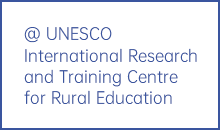Abstract
Overcoming inequality has become one of the most important goals of teacher education and educational reforms in general in China. Since the economic benefits of development have been realized more in urban areas than in rural areas, the Chinese government has spent the last decade introducing social and educational reforms in cities and rural areas to provide more opportunities for disadvantaged social groups. Supported by the Chinese government, teacher education programmes have been engaged in preparing teachers to serve students in low-socioeconomic rural areas. In this report, the author examines the initiatives of these teacher education reforms in China, which are implemented throughout the pipeline of teacher education: pre-service teacher education, student teaching, new teacher recruitment, and in-service teacher professional development. Among these reform initiatives, Dinggang internship is introduced and examined empirically to delineate how this reform prepares teachers over time and supports them in learning to teach for social equity goals. In the meantime, challenges emerged from the implementation of this initiative are also revealed. This report argues that transformation in teachers’ beliefs about social equity (as well as its negative counterpart, inequity) should be central to the discussion of teacher education curriculum and the current teacher educational reforms at large.
Keywords: Dinggang Internship, Teacher Education Reform, Rural Schools, Teacher Education Curriculum













